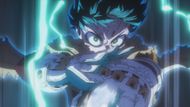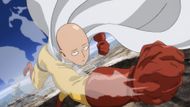My Hero Academia Season 8 was the long-awaited final season of a series that has dominated shonen anime for nearly ten years. The initial critical reaction has been skewed towards the positive. Critiques of My Hero Academia Season 8 have emphasized excellent direction, voice acting, and animation work that fit the emotional climax of the Final War arc. Numerous sites have urged viewers to watch the finale.
It began under an unusual level of scrutiny, not only because it is the culmination of the series but also due to distribution issues, especially streaming delays and subtitle errors. These challenges made the opening weekend harder than usual. Still, the actual responses to the episodes themselves have been generally positive.
In comparison, One Punch Man Season 3 has provoked a rather negative immediate response based on the quality of production and animation. The criticism was not about storytelling or adherence to the source material. In the days following its release, the show was widely critiqued for somewhat inconsistent animation and timing. Some of the most notable voices and publications in the industry wrote about how behind-the-scenes production decisions led to a lack of initial enthusiasm.
The verdict: My Hero Academia Season 8 received acclaim as it offered spectacle and clarity despite platform glitches. One Punch Man Season 3, on the other hand, was criticized for showing noticeable drops in quality, something that fans felt acutely.

The easiest explanation for the divergence in reactions is that the visible product of composition and animation was different in substance. The context of production was also different, and these visible merits were what fans evaluated each by.
The advantage of My Hero Academia Season 8 was that the creative pipeline and studio execution were in line with audience expectations for a finale. Coverage stressed the payoff of the storyline and the strength of its animation.
One Punch Man Season 3, in turn, suffered from a supposed decline in frame quality and direction that made its episodes look uneven. This, in turn, led to a more intense negative response than usual for a new season.
My Hero Academia Season 8: production, expectation, and distribution
The production of My Hero Academia Season 8 was perceived as the result of a well-developed production rhythm and a studio that could meet the demands of the manga. Therefore, its animation decisions were seen as intentional rather than haphazard. This made the animation choices appear warmer to critics.
The reception of One Punch Man was influenced by an apparent shift in the handoff process between creative teams and the involvement of a larger production committee. Critics and some analysts suggested that the coordination of studios, committees, and deadlines affected on-screen quality long before the episodes aired.
Differences were heightened by expectation management. Season 8 of My Hero Academia was positioned as an ending, and thus, viewers came in prepared for emotional resolution and strong visuals. Critics evaluated it through these two lenses.
One Punch Man had enormous expectations based on the original season’s reputation for defining action animation. Any perceived failure in animation was judged mercilessly and seen in direct comparison to previous achievements. The contrast between final-season polish and post-peak decline created two entirely different moods among fans.

Impressions outside the screen were shaped by distribution and public discourse. The distribution challenges of My Hero Academia Season 8, especially Crunchyroll subtitle and availability issues, made a splash but did not overshadow the quality of the episodes. As a result, the discourse tended to separate institutional hiccups from creative quality.
The discussion around One Punch Man Season 3, however, bled into accusatory debates about accountability. Whether it was production committee decisions, studio workdays, or shipping times, the conversation compounded online backlash and media attention.
To sum up, the inconsistent responses to My Hero Academia Season 8 and One Punch Man Season 3 in Fall 2025 are based on three practical factors. These include the comparative stability of studio performance and creative cohesion, the mismatch between fan expectations and animation execution, and how distribution or production issues reshaped audience discourse.
The framing and execution of the finale of My Hero Academia Season 8 earned it acclaim despite its platform missteps. Meanwhile, the production-related flaws of One Punch Man Season 3 earned a harsher response, one more reminiscent of a season being judged as a product of its production rather than for its specific narrative elements.
